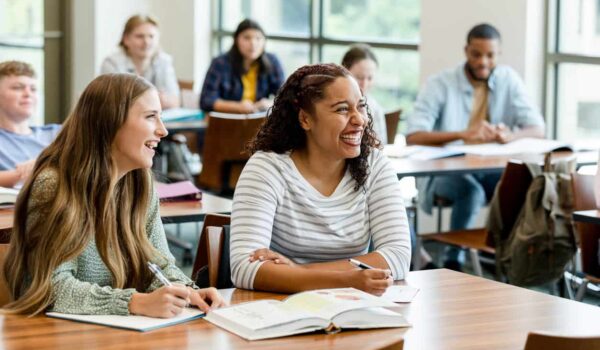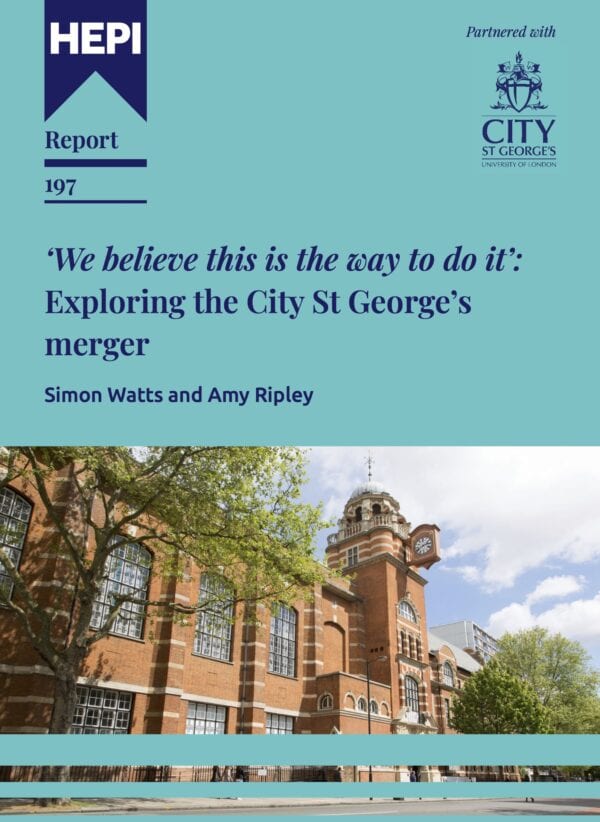Recognising the Value of Teaching-Focused Academics in Developing Student Skills
This HEPI blog was kindly authored by Chris Featherstone, Hillary Briffa, Madeleine Le Bourdon, Jeremy Moulton, Louise Pears, Anna Plunkett, Sudhir Selvaraj and Jillian Terry.
Amid the UK’s ongoing cost of living crisis and wider economic instability, equipping students with the skills they need to enter the workforce is more urgent than ever. The recent HEPI Policy Note 10 trends that will change higher education encapsulates this focus on skills development, arguing that skills development will be the foremost area of value for students, preparing them for modern employment. Employability has become a central concern, not only for students but also for universities, incentivised through league tables and recruitment strategies to demonstrate clear outcomes for graduates.
One under-recognised but vital resource in meeting this challenge is the growing group of teaching-focused academics, those appointed on education-centred or ‘teaching and scholarship’ contracts. In Politics and International Relations (IR), this group has expanded significantly over the past two decades. A recent British Academy report found that around 20% of new academic posts in Politics and IR are now teaching track roles.
These colleagues are often at the forefront of pedagogic innovation, transforming assessment design, refining marking practices, and integrating technology in ways that directly enhance student learning. Their work is central to helping students develop the transferable, applied skills that employers demand.
Innovating for Employability
One key area of innovation is the diversification of assessment formats. By moving beyond traditional essays and exams, students are given the opportunity to experiment with different ways of communicating ideas, developing critical skills aligned with real-world careers. This diversification of assessment formats also addresses the diversity of the student body in contemporary HE. There is no longer a typical student, and as such we need to increase the range of typical assessments.
At the University of York, Jeremy Moulton and Chris Featherstone offer ‘optionality in assessment’. Jeremy gives students the choice between writing a traditional essay or a policy report, bridging academic and applied outputs. Similarly, Chris enables students to choose between blogs or policy reports, allowing them to explore formats akin to journalism or content creation. This element of student choice encourages self-reflection and strategic skill development. Some students choose to strengthen familiar skills, while others test themselves in unfamiliar formats.
Artificial intelligence (AI) is a key challenge for universities, students and employers alike. With reports that 4 out of 5 students admit to using AI in their studies, this is a huge area for higher education. Addressing the challenge that AI has levelled at the sector, Jillian Terry will be one of the first cohort of LSE AI and Education Fellows, developing a strategy for embedding and fully integrating generative AI tools into students’ experiences of learning, researching, and collaborating in the sector-leading interdisciplinary module LSE100.
Meanwhile, at King’s College London, Dr Hillary Briffa has worked to reform how diverse assessment types are marked. As a ‘rubric champion’ within the Faculty of Social Science and Public Policy, she is helping to design assessment criteria that accommodate non-traditional outputs, such as podcasts and policy briefs, while maintaining academic rigour.
Enhancing Teaching Through Research
Teaching and scholarship (T&S) staff are not only innovating in assessment but also contributing to the scholarship of teaching and learning itself. At the University of Leeds, Dr Madeleine Le Bourdon and Dr Louise Pears have conducted research on the role of social media in teaching Politics. Their findings have shaped teaching practices within the School of Politics and International Studies (POLIS), and they have also led workshops to share insights with colleagues across the discipline. Dr Le Bourdon is also leading international research into ethical approaches to global university partnerships, further demonstrating the leadership roles T&S staff are increasingly taking on.
The ASPIRE Network
To promote and connect these efforts, we established the ASPIRE Network—a community for teaching-focused academics in Politics and IR. We believe that the teaching track makes a vital contribution to educational excellence, enhancing student experience, attainment, and graduate outcomes.
ASPIRE exists to share best practices, support professional development, and advocate for the recognition of teaching and scholarship colleagues across UK higher education. But we also seek to go further, calling for structural changes in how universities support and promote teaching track staff, and urging policymakers to better value the contributions these colleagues make to student success and institutional performance.
Empowering the Teaching Track
Despite their growing presence and impact, teaching track academics often face structural barriers to progression, limited access to research funding, and a lack of visibility in institutional decision-making. If universities are serious about improving student outcomes, enhancing graduate employability, and delivering high-quality teaching, they must do more than simply acknowledge these contributions. They must actively empower teaching-focused staff. This includes creating clear promotion pathways, offering equal recognition in strategic planning, and ensuring that reward structures value pedagogic innovation on par with research achievements. The ASPIRE network is working to address this need, advocating for improvements in progression, recognition, and reward for ‘teaching track’ academics in Politics and IR, but more is needed sector-wide. Empowering the teaching track is not just a matter of fairness; it is essential for sustaining excellence in UK higher education.
Conclusion
In a sector facing financial pressures, political uncertainty, and heightened expectations around graduate employability, we cannot afford to overlook the contributions of teaching-focused academics. Their work is not peripheral, it is central to ensuring that students leave university not just with knowledge, but with the skills, confidence, and flexibility they need to thrive.







Comments
Ron Barnett says:
Yet another HEPI blog where the term ‘education’ (let alone the concept of education) is absent. This is now par for the course these days. (If I have time, I’ll develop this point in relation to another recent HEPI blog, where that absence was even more striking.)
This is NOT a comment on HEPI or even, very much, the authors of these blogs, but much more the beginnings of a commentary on the reshaping of the discourse of higher education which (in the marketised higher education system of the UK – much more eg than in continental Europe or even perhaps and paradoxically the USA) is no longer interested in higher education as a space of education as such. (Simply as a marker, the term ‘understanding’ is nowhere to be seen, and the terms ‘knowledge’ and ‘critical thinking’ have virtually evaporated, and only maintained in eviscerated or even inverted forms.
And the Robbins idea that higher education is, as one of its principal aims, an entry into a common culture, is not even of historic interest. Furthermore, the question ‘What, if anything, is higher about higher education’ is ruled completely offside.
Does this slide in our understandings of ‘higher education’ matter? We seem to be sliding into a culture that is no longer seriously concerned with education as such. Is THIS something that HEPI might tackle? Is it possible, in the mid-twenty-first century, even to have a debate about these matters?
Ron Barnett
Reply
Add comment